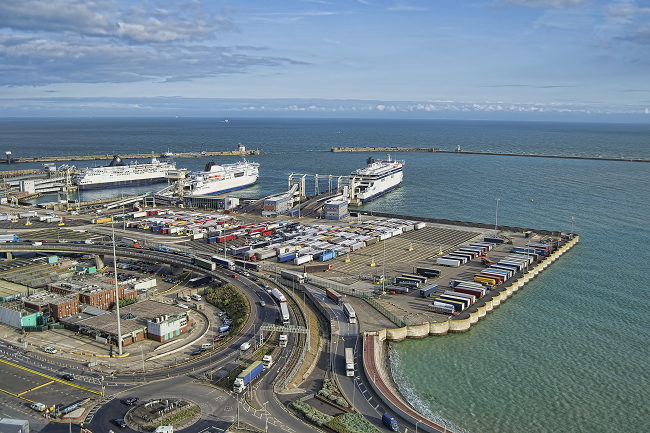The first working week following the end of the transition period on 31 December 2020 had passed relatively smoothly for the UK and EU with significantly lower levels of traffic between Calais and Dover following the New Year break.
This is despite long lorry queues leading to the port in the lead up to the Christmas break three weeks ago following a temporary French ban on freight movements from the UK due to the new variant of Covid-19.
Customs officials at the port of Calais waited until midday on Monday 4 January 2021 to check their first vehicle of the day.
Similarly, lorry traffic through Holyhead, had fallen to one-third of its usual capacity, port operator Stena disclosed to the BBC.
However, the BBC also revealed that the story was not the same on the Irish Sea trade border in the first week of the year, as six lorries on the first ferry arriving in Belfast were held back due to incomplete paperwork.
To recap
- The UK left the EU customs territory and single market on the night of 31 December 2020, marking the start of the UK-EU post-Brexit trade era
- A week prior to this on Christmas Eve, an historic, last-minute trade agreement was reached, eliminating tariffs on goods moving between the UK and EU from 1 January 2021, but new regulatory and customs checks still apply
- Businesses now have to complete customs declarations and other relevant documentation for the first time in over 40 years
- It was anticipated that these new regulatory requirements would result in massive queues on motorways leading up to the UK’s major ports – up to 7,000 lorries according to the government’s own worst-case scenario planning
- Northern Ireland has remained part of the EU and is applying the EU’s customs rules under the NI protocol agreed between the UK and the EU
Stockpiling in the run up to Christmas
With uncertainty remaining in the weeks leading up to the New Year, many businesses decided to stockpile goods ahead or delay deliveries. This could be a contributing factor as to why freight levels were low last week.
Covid-19 effect
Drivers now have to provide a negative Covid test when travelling between France and the UK and between the UK and Ireland.
Transport Secretary Grant Shapps told the BBC radio that the main issue during the first week of 2021 was the fact that drivers did not provide the Covid test necessary to enter France.
Too soon to cry victory?
The BBC also revealed that commercial traffic across the Channel was less than 20% of normal levels on Monday 4 January 2021, and it is expected that the real test will come in the next weeks as volumes return to normal levels.
“The real challenge and potential for significant disruption starts next week when we expect that the number of lorries heading to the border may return to normal levels…. so full compliance with the new rules is vital to avoid disruption” Cabinet Minister Michael Gove said in a statement.

